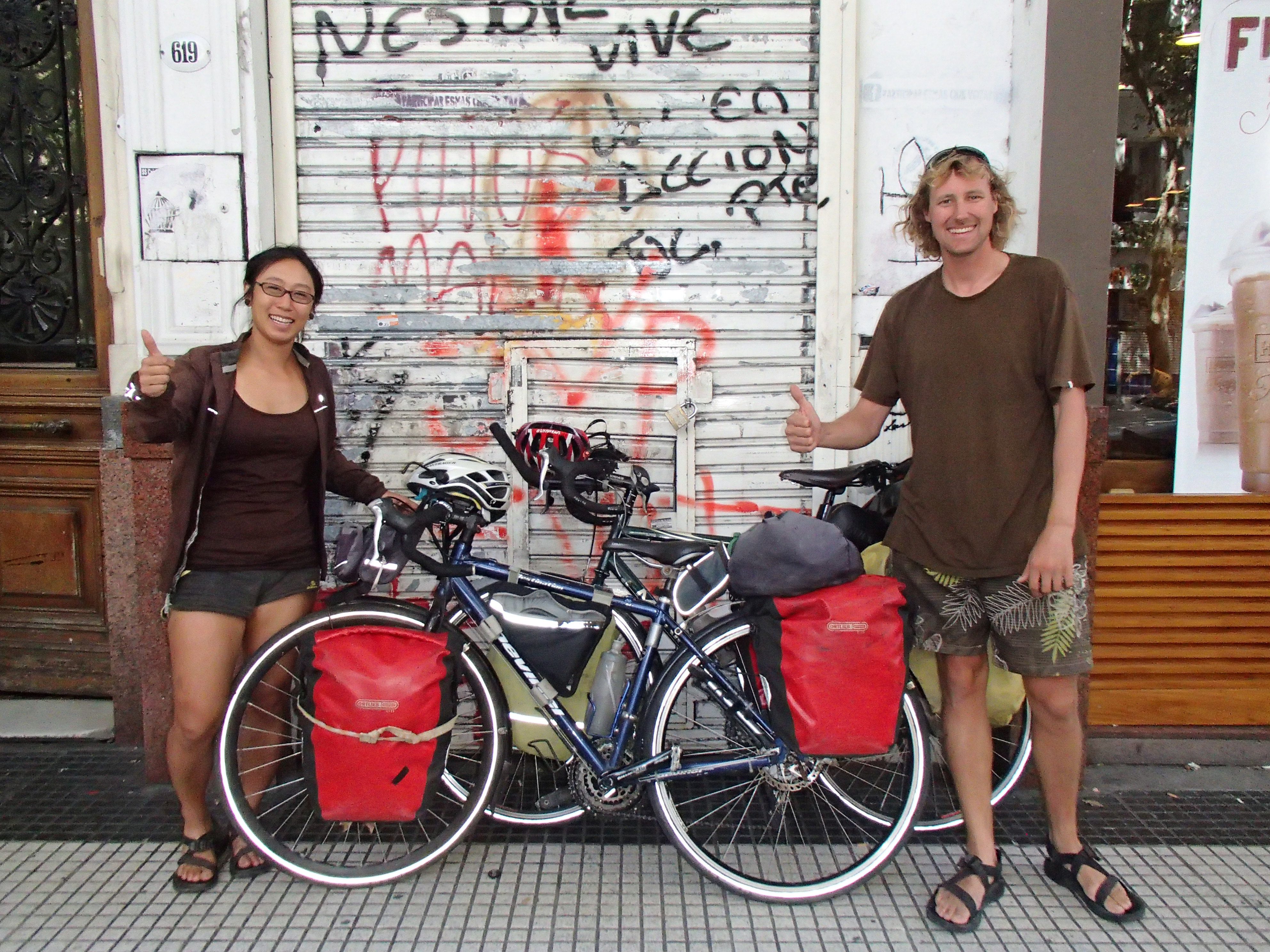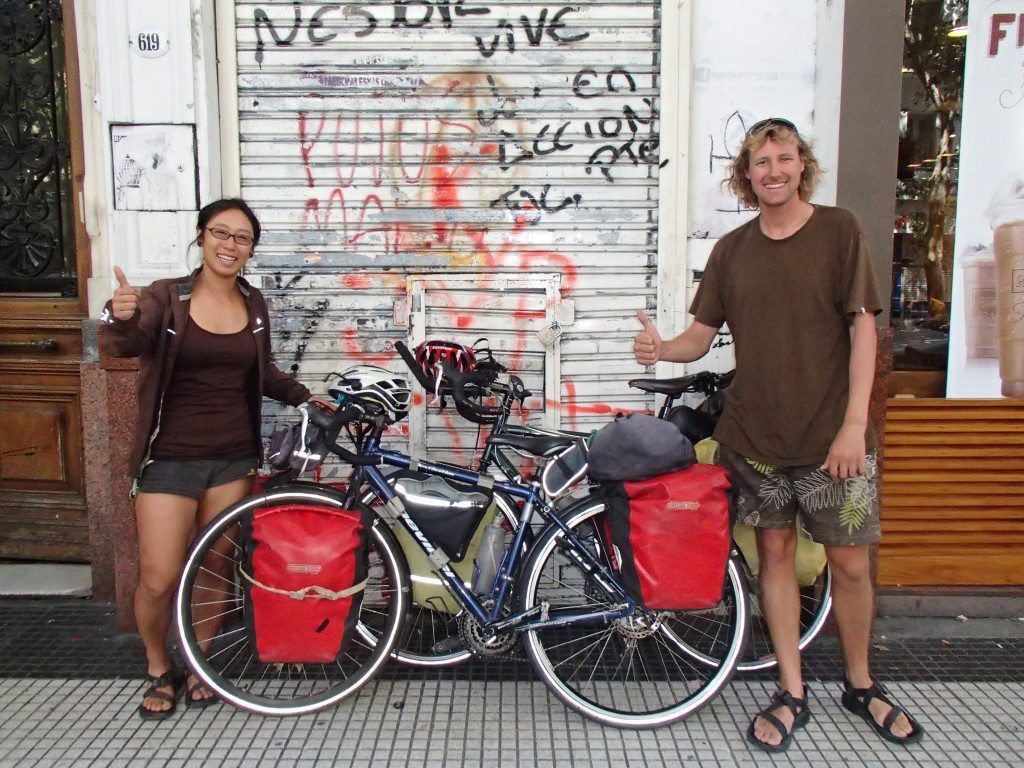British Columbia couple bikes 20,000 km from Vancouver to Buenos Aires


They say that love gives you wings. For one couple from Ladner, B.C., love gave them wheels.
Over salt flats, at high elevation amid the plateaus of South America, and through some of the most stunning, picturesque landscapes between British Columbia and Buenos Aires, Bryan Kinshella and Maggie Woo had a honeymoon to remember, it’s safe to say. More than a year and a half ago, the two cyclists bought a pair of old touring bikes through Craigslist, loaded them up with a tent, food and other basic necessities for a 20,000-km ride, and set out. Just married, the plan was to celebrate their relationship velo-style, and to do so while supporting a good, progressive cause. As a fundraising expedition, Kinshella and Woo used the journey to advocate for the Community Alliance Network‘s Men Allied for Health and Nonviolence, a program that supports health and gender equality initiatives in western Kenya.
To find their way, the couple only had a guidebook for the roads of America. Once crossing the southern U.S. border, though, the trip was a matter of exploration, finding their route south in the most challenging, immersive manner possible. Stopping in villages and communities, the expertise of locals became an invaluable resource, leading them to Carnival celebrations in Guatemala, and particularly memorably, to the hot springs of northern Chile.
The climb to the hot springs, Kinshella told reporters, was one of the toughest parts of the ride. At 4,000 m of elevation, not only was there very little oxygen to breathe, but the terrain offered no shade from the sun. Temperatures plunged overnight. The couple, however, was well prepared for any possible misfortune along the way: their bikes’ cargo included a GPS tracker, just in case.
Ultimately, the trip—which concluded in February, the couple took sea and land transportation before biking home from Seattle—was about a more human-scale way to experience the myriad kaleidoscopic cultures en route. “We liked the idea of being able to stop anywhere along the way and having three or four days to get to the next town, instead of having to be there tonight,” Kinshella said. And on bikes, of course, they were able to do so with minimal gear, carrying only the basics.
“You have your transportation,” added Woo. “You’re carrying your house. You don’t need gas.”
The couple maintained a blog of the journey, hosted on the Community Action Network’s website.
